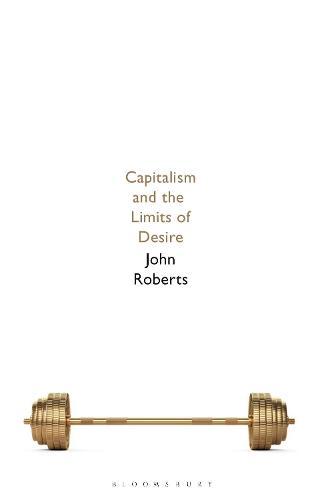Full Product Details
Author: John Roberts (University of Wolverhampton, UK)
Publisher: Bloomsbury Publishing PLC
Imprint: Bloomsbury Academic
Dimensions:
Width: 13.80cm
, Height: 1.40cm
, Length: 21.60cm
Weight: 0.340kg
ISBN: 9781350214958
ISBN 10: 1350214957
Pages: 264
Publication Date: 09 September 2021
Audience:
College/higher education
,
Tertiary & Higher Education
Format: Paperback
Publisher's Status: Active
Availability: Manufactured on demand

We will order this item for you from a manufactured on demand supplier.
Reviews
Why is challenging or overcoming capitalism such a difficult project when its economic, social, and environmental failures are abundantly clear? John Roberts proposes a unique answer, it is because capital has become part of our very conception of ourselves, our self-love. * Jason Read, Professor of Philosophy, University of Southern Maine, USA * John Roberts's Capitalism and the Limits of Desire intervenes at the very core of contemporary debates on the libidinal economy, insisting that we need to work through the complex nexus of economic logic and the production of enjoyment, if we want to effectively organise our resistance against the catastrophic tendencies of capitalism. Roberts also provides us with a much-needed orientation in the multiplicity of classical and contemporary takes on the function of enjoyment and affects in the reproduction of capitalism. * Samo Tomsic, Research Associate in Philosophy, Humboldt University, Berlin, Germany *
Why is challenging or overcoming capitalism such a difficult project when its economic, social, and environmental failures are abundantly clear? John Roberts proposes a unique answer, it is because capital has become part of our very conception of ourselves, our self-love. We love capital more than ourselves. * Jason Read, Professor of Philosophy, University of Southern Maine, USA * John Robert's Capitalism and the Limits of Desire intervenes at the very core of contemporary debates on the libidinal economy, insisting that we need to work through the complex nexus of economic logic and the production of enjoyment, if we want to effectively organise our resistance against the catastrophic tendencies of capitalism. Robert also provides us with a much-needed orientation in the multiplicity of classical and contemporary takes on the function of enjoyment and affects in the reproduction of capitalism. * Samo Tomsic, Research Associate in Philosophy, Humboldt University, Berlin, Germany *
Why is challenging or overcoming capitalism such a difficult project when its economic, social, and environmental failures are abundantly clear? John Roberts proposes a unique answer, it is because capital has become part of our very conception of ourselves, our self-love. We love capital more than ourselves. * Jason Read, Professor of Philosophy, University of Southern Maine, USA *
Author Information
John Roberts is Professor of Art and Aesthetics at the University of Wolverhampton, UK. He is author of The Intangibilities of Form: Skill and Deskilling in Art After the Readymade (2007), The Necessity of Errors (2010), Photography and Its Violations (2014), Revolutionary Time and the Avant-Garde (2015), Thoughts on an Index Not Freely Given (2016) and His The Reasoning of Unreason (Bloomsbury 2018) and co-editor of Boris Arvatov, Art and Production (2017)




